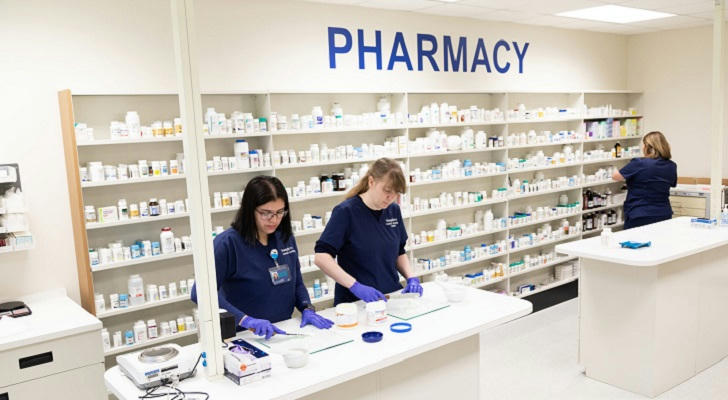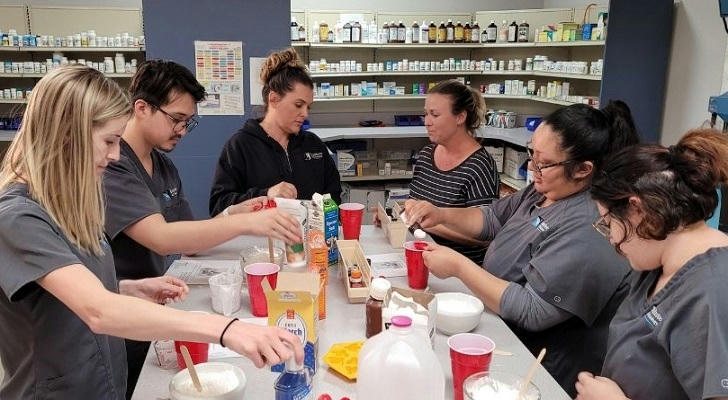Behind the Counter: What You Should Know About Becoming a Pharmacy Technician in the U.S.
Walk into any pharmacy in America—whether it’s a chain like CVS or Walgreens, or a hospital-based pharmacy—and behind the counter, you’ll find professionals working quickly and carefully to prepare prescriptions, assist customers, and ensure medications are handled safely. Among them are Pharmacy Technicians—often called the right hand of the pharmacist.
As healthcare needs continue to grow, Pharmacy Technicians (Pharmacy Techs) are becoming essential members of the medical system. If you're curious about a healthcare career that doesn't require 8+ years of medical school, this might be a rewarding path to consider.

This article will walk you through the current state and future outlook of the field, what Pharmacy Technicians actually do, and how to get started with certifications and training programs.
Industry Outlook: Why Pharmacy Technicians Are in Demand
The demand for Pharmacy Technicians in the U.S. is driven by several factors:
Aging population: More people are living longer and managing chronic conditions like diabetes, high blood pressure, and heart disease—which all often require prescription medications.
Expanded access to care: With more Americans covered under health insurance, prescription volume has increased.
Role expansion: In some states, pharmacy techs are now allowed to administer vaccines or handle more complex medication preparation.
According to the U.S. Bureau of Labor Statistics (BLS):
There were over 450,000 pharmacy technician jobs in the U.S. as of 2022.
The field is expected to grow by 6% between 2022 and 2032, which is faster than average for all occupations.
Hospitals, mail-order pharmacies, and retail drugstores are the main employers, but long-term care facilities and military/government institutions are growing as well.
What Does a Pharmacy Technician Actually Do?
Pharmacy Technicians are responsible for much more than just ringing up prescriptions. They play a vital role in ensuring patients receive the right medications, in the right dosage, and with proper instructions.
Typical responsibilities include:
Preparing and labeling prescription medications
Measuring, mixing, or packaging medications under supervision
Verifying prescription information and patient records
Processing insurance claims and handling billing
Managing inventory and stocking medications
Interacting with patients and explaining medication use
In hospitals, techs may also help prepare IV solutions or compound medications in sterile environments.
Pharmacy Technicians always work under the supervision of a licensed pharmacist, but depending on the state, they may have more or less authority (e.g., some states allow them to give vaccines or take verbal prescriptions from doctors).
Training and Certification: What You Need to Get Started
You don't need a four-year degree to become a pharmacy tech, but most employers do require formal training and national certification.
Step 1: High School Diploma or GED
This is the minimum educational requirement to enter any training program or certification process.
Step 2: Complete a Pharmacy Technician Training Program
These programs are offered by community colleges, vocational schools, and some online platforms. They typically take 4 to 12 months and may include:
Pharmacy law and ethics
Medical terminology
Dosage calculations
Drug classifications
Sterile and non-sterile compounding
Hands-on externships
Accredited programs are preferred and may be required to sit for national certification exams.
Step 3: Get Certified (Strongly Recommended or Required in Most States)
There are two major national certification bodies in the U.S.:
| Certification | Organization | Requirements |
|---|---|---|
| CPhT (Certified Pharmacy Technician) | PTCB (Pharmacy Technician Certification Board) | Completion of a recognized training program + passing the exam |
| ExCPT (Exam for the Certification of Pharmacy Technicians) | NHA (National Healthcareer Association) | Similar training + passing score on ExCPT exam |
These exams test knowledge in areas such as pharmacy law, calculations, drug classifications, and patient safety.
As of 2024, over 45 states require or recognize one of these certifications to work as a pharmacy tech.
Where to Study: Training Program Options
Community Colleges
Many offer certificate or associate degree programs in Pharmacy Technology. These often include hands-on externships and job placement services.
Examples:
Los Angeles City College (CA)
Austin Community College (TX)
Miami Dade College (FL)
Online Programs (Flexible/Remote)
Penn Foster
CareerStep
Ashworth College
These are great for working adults or caregivers needing flexible hours.
Pharmacy Tech Bootcamps
Walgreens, CVS, and some large hospitals run in-house training programs that may lead to employment upon completion.

Career Settings and Growth Paths
Pharmacy Technicians work in a variety of environments:
Retail pharmacies (CVS, Walgreens, Walmart)
Hospitals and clinics
Mail-order or specialty pharmacies
Compounding labs
VA hospitals or military health systems
With experience and additional certification, many pharmacy techs move into supervisory roles, specialize in sterile compounding, or transition into roles like medication history technician, pharmacy buyer, or even pharmaceutical sales.
Why People Choose This Path?
Many pharmacy technicians cite the following reasons for choosing the career:
Quick entry into the healthcare field
Hands-on patient interaction without direct clinical procedures
Clear paths for advancement and specialization
Meaningful work that helps people every day
Final Takeaway: Is Pharmacy Tech Right for You?
If you're detail-oriented, enjoy helping others, and have an interest in healthcare—but don’t want to spend years in medical school—becoming a Pharmacy Technician could be a fulfilling and practical career choice.
With growing demand, flexible training options, and multiple certification paths, there’s never been a better time to explore this critical role in the healthcare system.
Curious to learn more?
You can start by checking your state’s certification rules, exploring online training programs, or even asking your local pharmacy if they offer job shadowing or internship opportunities.
